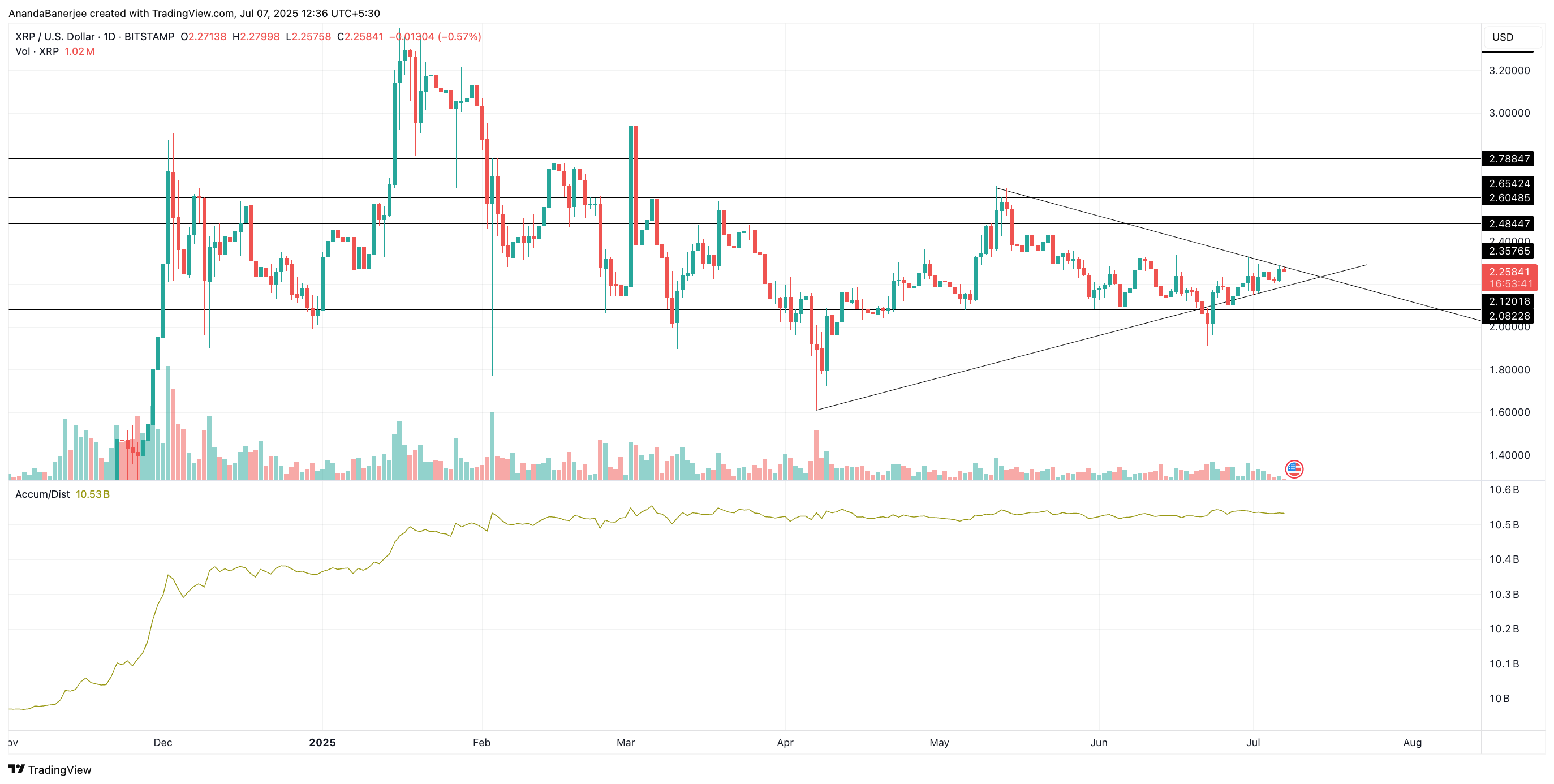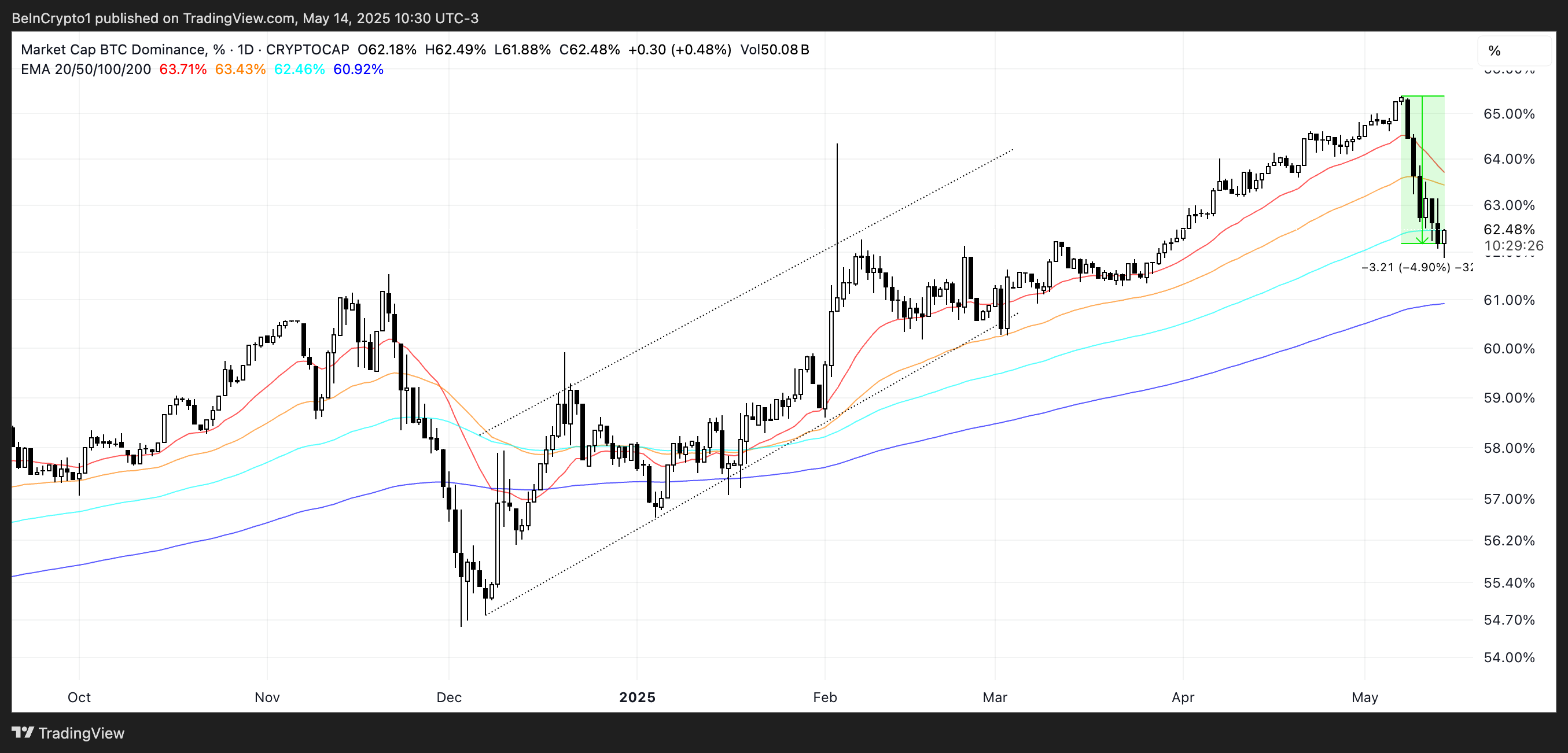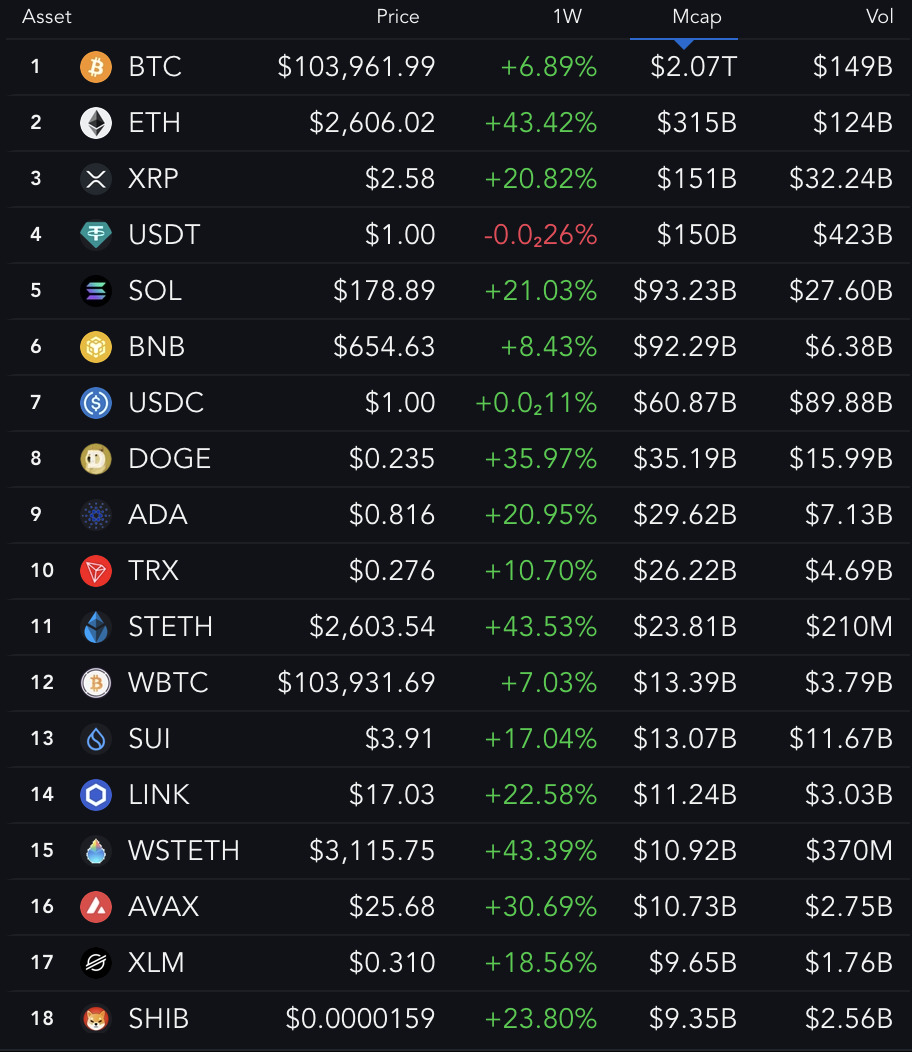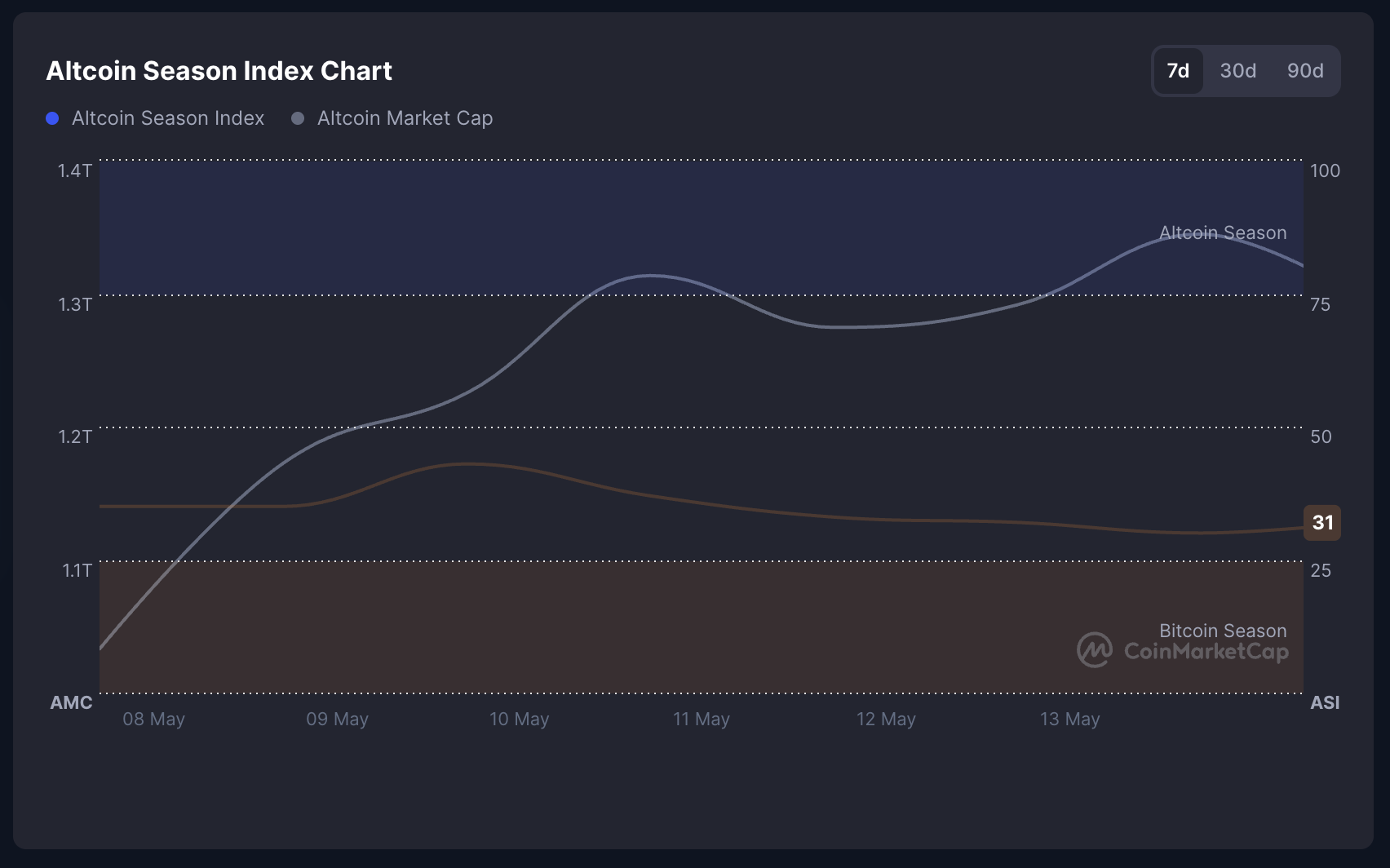Cardano (ADA) has been trading below the $0.70 mark since March 29, struggling to regain bullish momentum. Despite brief signs of strength, recent indicators now point to weakening trend conditions.
Both the BBTrend and ADX show fading buying pressure, while EMA alignment remains bearish. With price stuck between key support and resistance levels, ADA’s next move could define its short-term direction.
Cardano BBTrend Turns Negative, Signaling Momentum Reversal
Cardano’s BBTrend has flipped negative, currently sitting at -0.78 after spending the last five days in positive territory. The indicator reached a peak of 9.76 on April 14, signaling strong bullish momentum at the time.
BBTrend, short for Bollinger Band Trend, measures the strength and direction of a price move relative to its Bollinger Bands.
Positive values typically indicate bullish trends, while negative values point to bearish conditions or weakening momentum.

The shift to -0.78 suggests that Cardano’s recent uptrend has lost strength and may be reversing. A negative BBTrend reading means the price is now moving closer to the lower band, often a sign of rising selling pressure.
While it doesn’t confirm a strong downtrend yet, this reversal could indicate the beginning of a broader consolidation or bearish phase unless momentum quickly recovers.
Traders may want to watch closely for follow-through or a bounce to assess ADA’s short-term direction.
Cardano Momentum Fades as ADX Crashes and Selling Pressure Rises
Cardano’s DMI chart shows a sharp drop in trend strength, with its ADX falling to 15.12 from 28.34 just two days ago.
The ADX (Average Directional Index) measures trend intensity—readings above 25 suggest a strong trend, while values below 20 indicate a weak or consolidating market.
The steep decline in the ADX signals that the momentum behind Cardano’s recent move is quickly fading.

At the same time, the +DI (bullish directional indicator) has dropped from 22.61 to 17.39, showing weakening buying pressure. Meanwhile, the -DI (bearish indicator) has risen from 10.5 to 14.95, pointing to a gradual increase in selling strength.
With both the ADX and +DI falling, and -DI climbing, the setup hints at a potential shift in favor of the bears.
Unless bullish momentum returns quickly, Cardano could enter a period of sideways movement or even a short-term downtrend.
Bearish Structure Still Dominates Cardano
Cardano’s EMA lines remain bearish, with short-term averages still positioned below the long-term ones—indicating that downward momentum is intact.
Cardano price is holding above a key support zone near $0.594, but if this level fails, it could trigger a deeper drop toward $0.511. This would confirm a continuation of the downtrend and reflect growing selling pressure.
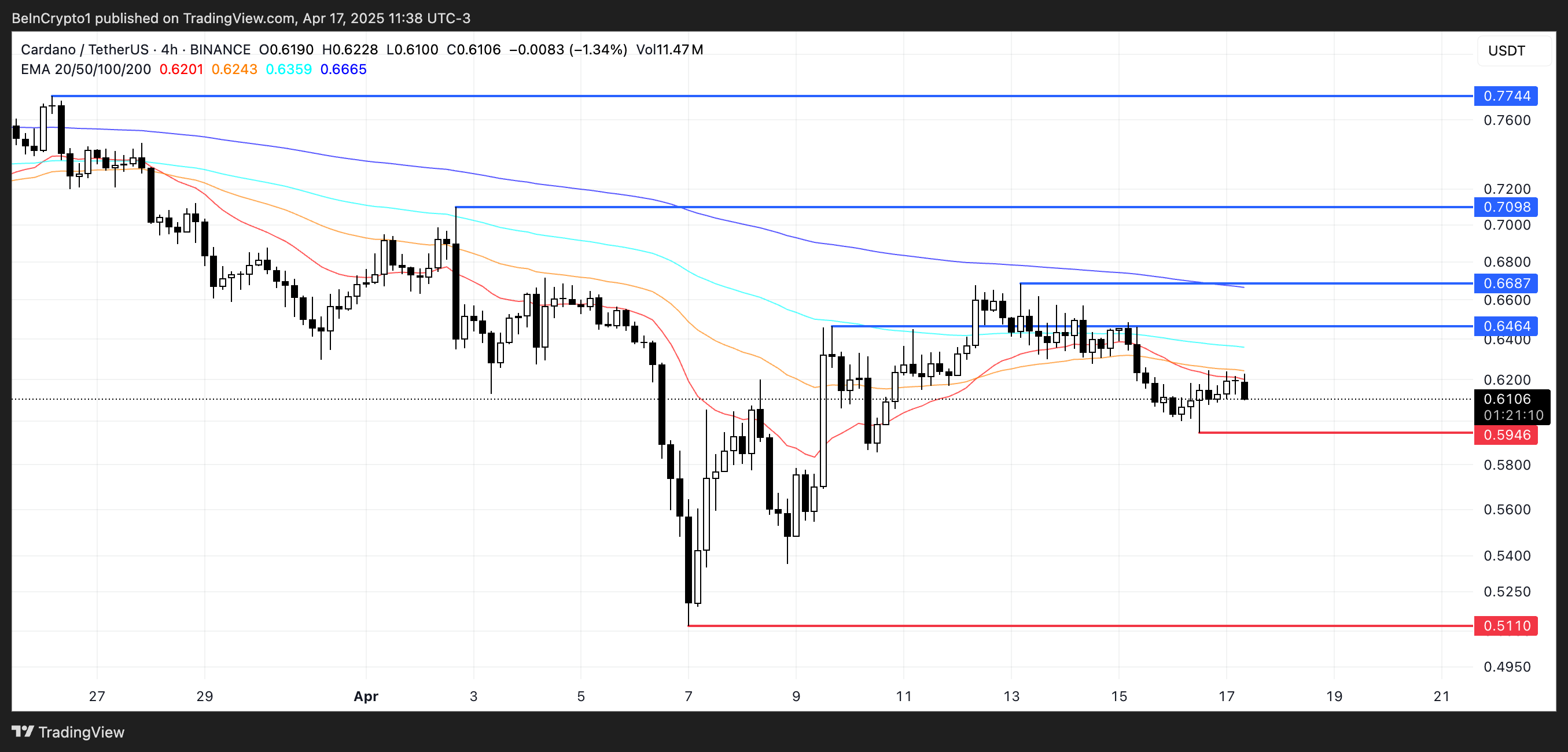
However, if ADA manages to reverse its current momentum, the first major resistance lies at $0.64. A breakout above that level could open the door to further gains, with potential targets at $0.66 and $0.70.
If the uptrend strengthens, ADA could even rally toward $0.77, marking a more decisive recovery and trend shift.
The post Cardano (ADA) Might Turn Bearish As Price Struggles to Breach $0.70 appeared first on BeInCrypto.



